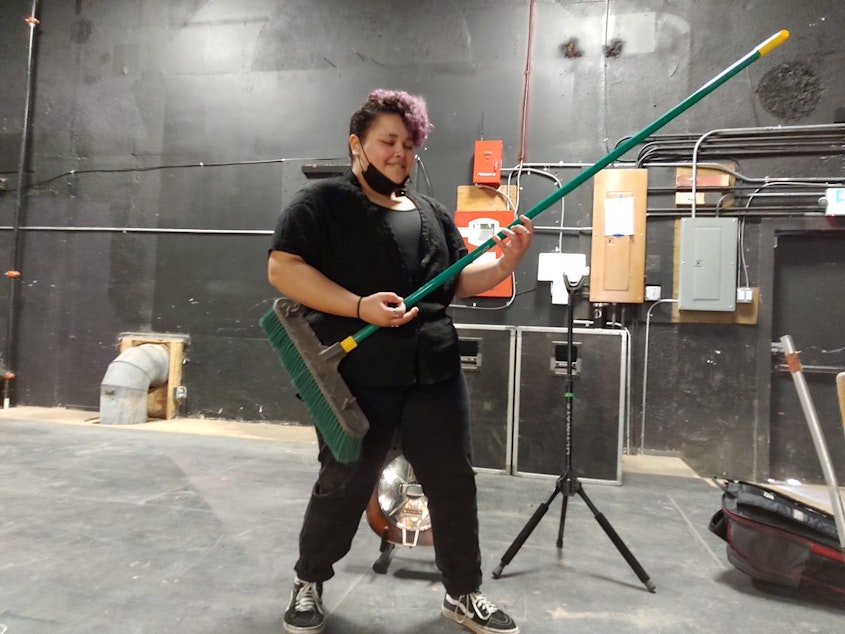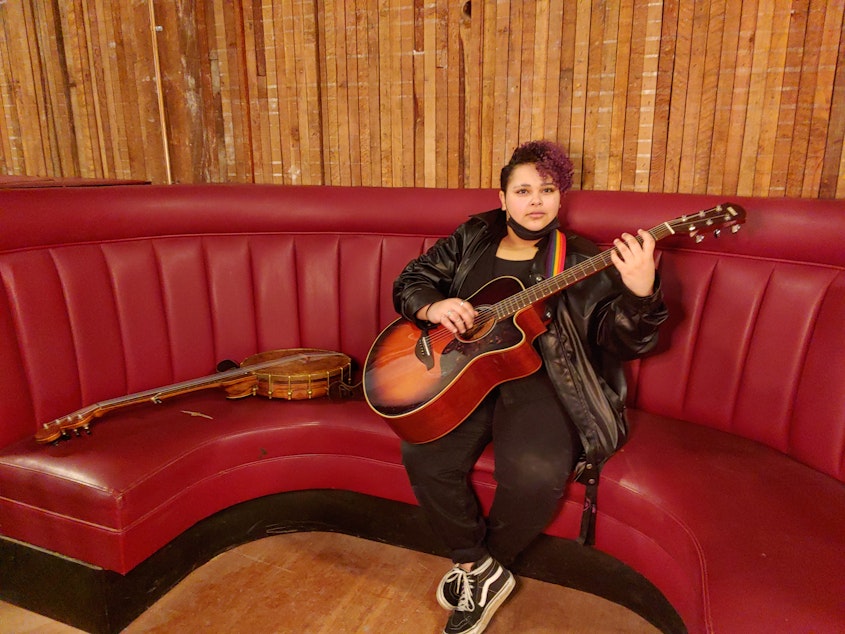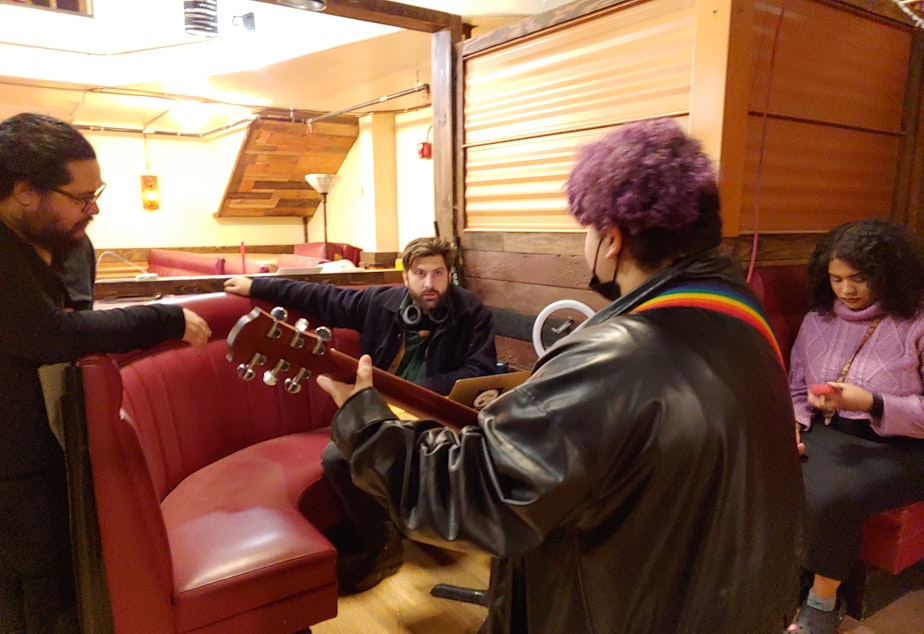‘Weirdos who play music together’: The importance of ‘third places’ during the pandemic

It can be easy to slip into a cycle of going to work or school, and then coming home, day in and day out. You might feel the need for another place to go, to get away from that routine.
But during the pandemic lockdown, there were suddenly a lot fewer of these "third places."
RadioActive’s Gideon Hall looked at one of his ‘third places’ — a Seattle music organization — and how they’re coming back from being online.
[RadioActive Youth Media is KUOW's radio journalism and audio storytelling program for young people. This story was entirely youth-produced, from the writing to the audio editing.]
L
ike a lot of people in high school, I spend seven hours a day at school, then I go home to do homework. That was, until my friend Ari Whidbey bullied me into joining my high school’s theater program.
Theater turned into a way for me to escape other responsibilities and pressures. These places — outside of home, school, and work — actually have a name: "third places." For me, it’s theater.
For Ari, it’s The Rhapsody Project, a community that teaches blues and roots music to young people through an antiracist lens.
Sponsored
Ari describes it differently. “We're all just a bunch of weirdos who play music together," they said.
Anti-racism is a huge part of what The Rhapsody Project does. They teach Black American blues and roots music, which is what almost all of the music we know and love evolved from.
Ari’s a busy person. So I asked them why they choose to be involved with The Rhapsody Project along with school, theater, and other responsibilities.
“I choose to do Rhapsody because it's something I genuinely enjoy,” Ari said. “It is nice to have a day where you're just playing music, having fun, and honestly sharing stories about your week with people you love. And usually, we have awesome food.”
Sponsored
To understand more about third places like The Rhapsody Project, I spoke to Danielle Littman, a PhD candidate in social work at the University of Denver. She studies third places and why they’re so important.
“Having a third place where you feel affirmed and you feel like you belong can be really important in anybody's life,” Littman said. “But it’s especially important for young people who hold marginalized identities, especially if they haven't gotten their identities and experiences affirmed or their needs met in their first place at home, or in their second place at school.”
This creates an incredible community among the participants, but also between the participants and the educators. I asked Ari what they thought about Joe Seamons, one of The Rhapsody Project's co-founders.
“That is my man," Ari said. "I love Joe."
Later, when I talked to Seamons to hear more about Rhapsody, he described the same kind of community Ari was talking about. I asked him what kept him with The Rhapsody Project all these years.
Sponsored
“We teach music, but it really is for the purpose of building community as much as anything,” Seamons said. “And so it's the community that kept me sticking with it.”
This kind of community became really difficult to maintain over the pandemic. The Rhapsody Project didn’t permanently shut down like some places did, but it was hard to continue during lockdown.
“The kind of thing that we do at the heart of Rhapsody is we get together and we play music,” Seamons said. “And that's not a thing you can do on Zoom in the same way.”

During lockdown, a lot of third places like The Rhapsody Project moved online. Schools went virtual, and so did a lot of jobs. All of these things that would normally happen in at least three different places were all happening in one: at home.
Sponsored
Obviously, there are problems with this.
“One of the cons of virtual third places, and therefore pros of physical third places, is just this sense of embodiment," Littman said. "We can think about that on a cellular level, when we're physically connecting with people, that can be really valuable.”
Littman was careful to note that there are some important upsides to virtual third places, too.
“I also think it's important to bring up the idea of accessibility, you know, immunocompromised folks and folks with disabilities,” she said.
The pandemic has made third places more important than ever, even for people who haven't ever heard the term "third place."
Sponsored
“The pandemic made having Rhapsody in my life way more important,” Ari said. “I didn't really realize how important Rhapsody was to me until we went online, and now I know. And I'll never take it for granted.”
This story was produced in a RadioActive Youth Media Advanced Producers workshop for high school and college-age youth. Production assistance by Antonio Nevarez. Edited by Mary Heisey. Prepared for the web by Simone St. Pierre Nelson.
Find RadioActive on Instagram, TikTok, YouTube and Facebook, and on the RadioActive podcast.
Support for KUOW's RadioActive comes from the Bill & Melinda Gates Foundation Discovery Center and BECU.




